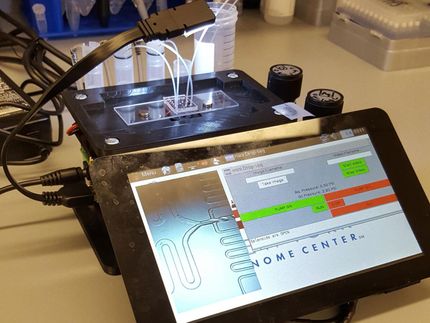GlaxoSmithKline and Genmab present positive Phase II results with Ofatumumab in patients with rheumatoid arthritis
GlaxoSmithKline (GSK) and Genmab A/S announced positive primary efficacy data (evaluated at 24 Weeks) to be presented at EULAR 2007, the Annual European Congress of rheumatology from a Phase II study of ofatumumab (HuMax-CD20(R)) in patients with rheumatoid arthritis (RA). Ofatumumab is being co-developed under a worldwide agreement between GlaxoSmithKline and Genmab.
A total of 225 patients with active RA who have previously failed one or more disease-modifying anti-rheumatic drugs (DMARDs) were enrolled into this double-blind placebo controlled study to evaluate the safety and efficacy of ofatumumab. Patients within the study were randomized into one of four treatment groups (300 mg, 700 mg or 1000 mg ofatumumab or placebo) and assessed based on their American College of Rheumatology (ACR) and EULAR responses at 24 weeks. Continuation of current stable doses of methotrexate and low dose corticosteroids were permitted.
In the intention-to-treat study population, comprising 224 patients, ACR20 was achieved by 46% of all patients receiving ofatumumab, ACR50 achieved by 24% and ACR70 achieved by 6% of ofatumumab patients compared to 15%, 5% and 0% in the placebo group. Evaluated by dose groups, an ACR20 response was obtained by 41% (p=0.002), 49% (p<0.001) and 46% (p<0.001) of patients receiving 300 mg, 700 mg and 1000 mg of ofatumumab. An ACR50 response was obtained by 19%, 26% and 26% of patients receiving the varying doses of ofatumumab, with 9%, 4% and 6% obtaining an ACR70 response. These scores indicate a 20%, 50% or 70% improvement respectively in the number of swollen and tender joints, as well as improvements in other disease-activity measures.
In the subgroup of patients receiving concomitant stable doses of methotrexate, comprising 178 patients, results across the three dose levels of ofatumumab studied showed that an ACR20 response was obtained by 42% (p=0.006), 56% (p<0.001) and 50% (p=0.001) of patients in the 300 mg, 700 mg and 1000 mg dose groups, respectively compared to 16% in the placebo group. An ACR50 response was obtained by 21%, 26% and 26% of patients receiving the varying doses of ofatumumab, with 8%, 2% and 5% obtaining an ACR70 response. The corresponding responses for the placebo group were 7% and 0%.
At 24 weeks, the patients' immune responses to study medication (ofatumumab or placebo) were also evaluated by testing for the presence of human anti-human antibodies (HAHAs). All patients tested negative at 24 weeks.
Overall, 72% (300 mg p<0.001; 700 mg p=0.001; 1000 mg p=0.001) of patients treated with each of the ofatumumab doses experienced at least a moderate (moderate or good) EULAR response compared to 40% of patients receiving placebo at week 24.
The data also showed that ofatumumab appeared well tolerated, with no increased frequency of serious infections. Approximately half of the adverse events occurred on infusion days (51%) with the most frequently reported being mild or moderate (CTC grade 1-2 events), including throat irritation, dyspnoea and rash.
Other news from the department research and development
Most read news
More news from our other portals
See the theme worlds for related content
Topic world Antibodies
Antibodies are specialized molecules of our immune system that can specifically recognize and neutralize pathogens or foreign substances. Antibody research in biotech and pharma has recognized this natural defense potential and is working intensively to make it therapeutically useful. From monoclonal antibodies used against cancer or autoimmune diseases to antibody-drug conjugates that specifically transport drugs to disease cells - the possibilities are enormous

Topic world Antibodies
Antibodies are specialized molecules of our immune system that can specifically recognize and neutralize pathogens or foreign substances. Antibody research in biotech and pharma has recognized this natural defense potential and is working intensively to make it therapeutically useful. From monoclonal antibodies used against cancer or autoimmune diseases to antibody-drug conjugates that specifically transport drugs to disease cells - the possibilities are enormous

























































